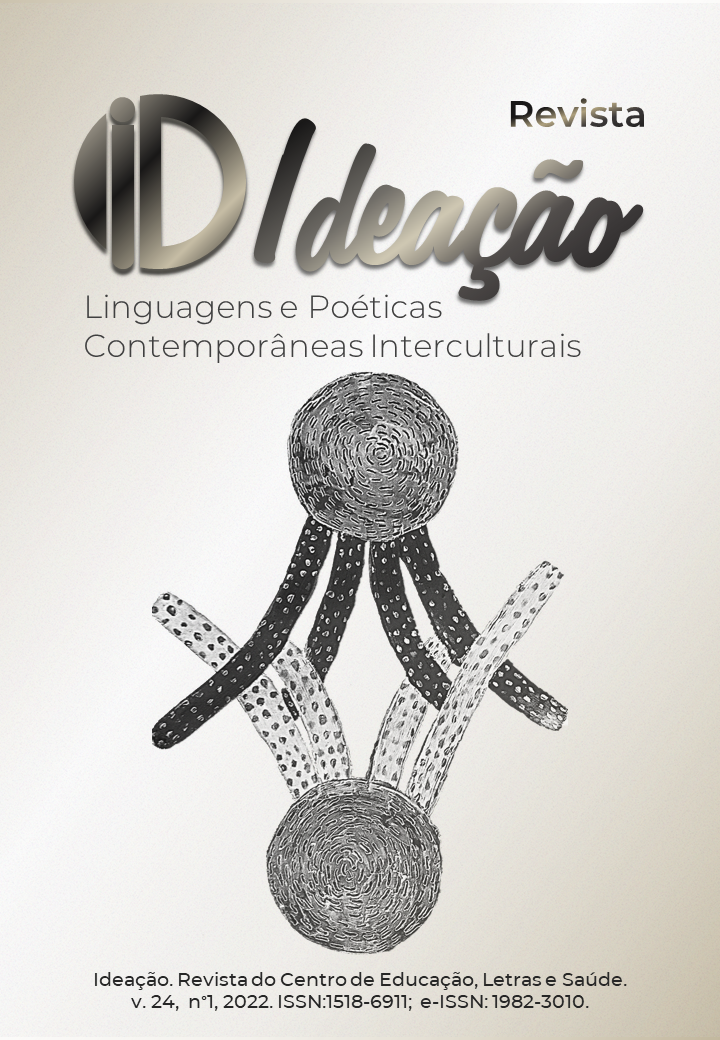Internacionalização da educação e economia criativa
uma relação de existência mutualística
DOI:
https://doi.org/10.48075/ri.v24i2.28565Palavras-chave:
Economia Criativa, Internacionalização da Educação, InterculturalidadeResumo
Disserta sobre os elementos de intersecção entre os campos científicos da Economia Criativa e da Internacionalização da Educação, com o objetivo de demonstrar que concepções conceituais dos setores da Indústria Criativa são construídas através da educação intercultural, ao mesmo tempo em que este campo se apropria de valores e simbolismos representados pelos setores criativos e culturais. Estabelece-se, assim, uma relação mutuamente benéfica e de necessária observação para o desenvolvimento formativo direcionado a ambos os objetos investigados. Ao fim do estudo, entende-se que, ao mesmo tempo que são as atividades criativas responsáveis por preservar e promover os elementos culturais e criativos de nossa realidade cotidiana, a literacia cultural do indivíduo é que permite processos cognitivos de aquisição de conhecimento e de processos e atos criativos, constituindo, assim, um ciclo virtuoso na vida daqueles indivíduos que se permitem essa proposição e que desempenham papéis profissionais e estratégicos na Economia Criativa.
Downloads
Publicado
Como Citar
Edição
Seção
Licença
Copyright (c) 2022 Direitos partilhados conforme licença CC BY-NC-SA 4.0

Este trabalho está licenciado sob uma licença Creative Commons Attribution-NonCommercial-ShareAlike 4.0 International License.
Política para Periódicos de Acesso Livre
Autores que publicam nesta revista concordam com os seguintes termos:
1. Autores mantém os direitos autorais e concedem à revista o direito de primeira publicação, com o trabalho simultaneamente licenciado sob a Licença Creative Commons Attribution que permite o compartilhamento do trabalho com reconhecimento da autoria e publicação inicial nesta revista.
2. Autores têm autorização para assumir contratos adicionais separadamente, para distribuição não-exclusiva da versão do trabalho publicada nesta revista (ex.: publicar em repositório institucional ou como capítulo de livro), com reconhecimento de autoria e publicação inicial nesta revista.
3. Autores têm permissão e são estimulados a publicar e distribuir seu trabalho online (ex.: em repositórios institucionais ou na sua página pessoal) a qualquer ponto antes ou durante o processo editorial, já que isso pode gerar alterações produtivas, bem como aumentar o impacto e a citação do trabalho publicado (Veja O Efeito do Acesso Livre).
Licença Creative Commons
Esta obra está licenciada com uma Licença Creative Commons Atribuição-NãoComercial-CompartilhaIgual 4.0 Internacional, o que permite compartilhar, copiar, distribuir, exibir, reproduzir, a totalidade ou partes desde que não tenha objetivo comercial e sejam citados os autores e a fonte.


